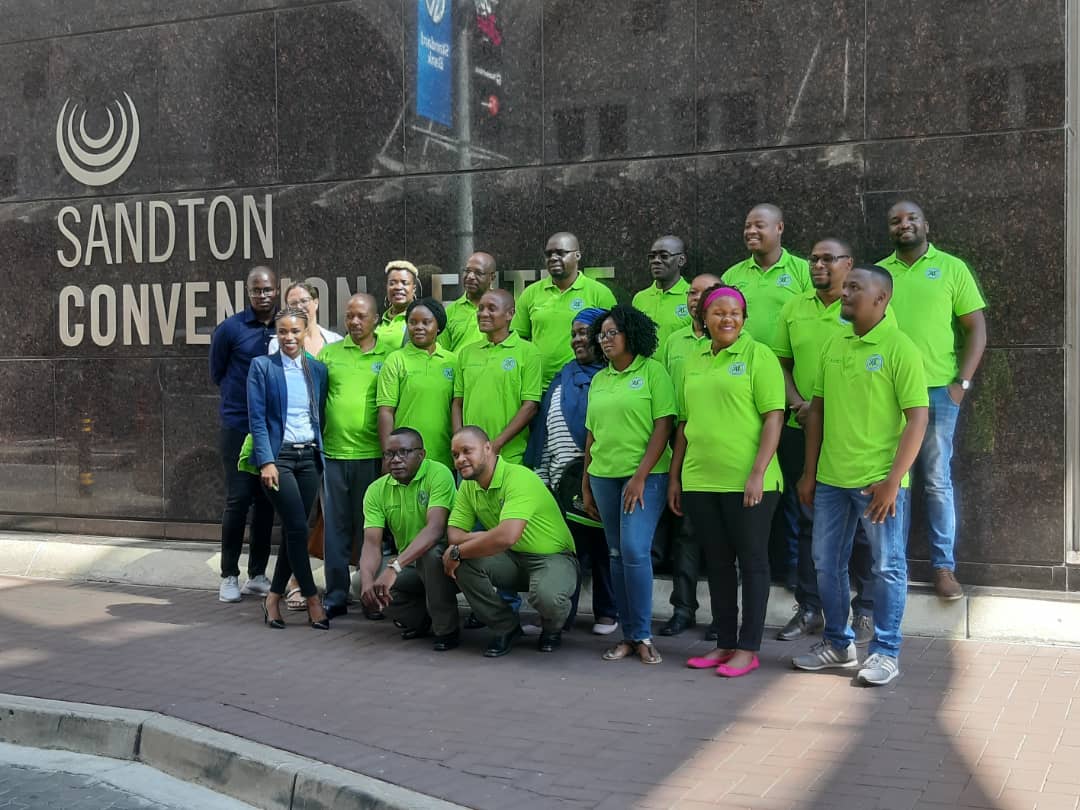CCARDESA Information Focal Point Persons Reflect on their Successes

Have you ever found yourself thinking whether what you are doing is yielding any fruits? Do you sometimes feel like your efforts are all in vain and that you are just wasting your time? Well, if you have felt that way, stay rest assured that you are not the only one experiencing that. The members of the CCARDESA Information, Communication and Knowledge Management (ICKM) Community of Practice (COP) also felt that way at some point. But guess what? Members met for two days (18-19 September) to celebrate their achievements and successes attained after a year of hard work on the CCARDESA website.
The celebration took place at a regional Information, Communication and Knowledge Management (ICKM) workshop, for the ICKM national focal point persons in Sandton, South Africa. The national focal point persons form part of the community of practice whose common goal is the CCARDESA system and information sharing. The purpose of the workshop was for National ICKM Representatives of SADC countries to review the progress made on the website, share best practices, learn from successes and challenges encountered as they navigated and uploaded content on the CCARDESA website.
The Research and Advisory Services Thematic Coordinator, Dr Baitsi Podisi, graced the occasion by giving the official opening and welcome remarks at the meeting. Dr Podisi thanked the CCARDESA ICKM focal point persons for their unrelenting devotion and support to CCARDESA. He reminded the participants that they are the ambassadors of the CCARDESA’s information and knowledge management system as they have the power to link other stakeholders and their organisation’s agricultural systems to that of CCARDESA. They are also the ones who can assist in raising awareness of CCARDESA interventions and outputs for the whole region to see.
He further mentioned that the information and knowledge hub is important for addressing issues such as climate change which is affecting the region. The information shared on the website can be used to contribute towards efforts of reducing the food insecurity experienced in the region. He cited the 2019 SADC Vulnerability Report, which forecasted that 41.2 million people in 13 countries would be food insecure with increased levels of malnutrition among children under the age of five years. The website has important information on climate-smart agriculture. Therefore, it is an important conduit through which solutions can be shared to contribute to food security of the region. He explained that information combined with the use of the latest technologies can be harnessed to combat hunger and environmental degradation. Therefore, in the information age, people need to proactively use the agricultural information and available ICTs to transform agriculture in order to address the urgent need to sustainably produce more food and preserve the environment.
Participants were happy to see how much content each country had contributed to the CCARDESA system and how much people in the region are accessing it for research, innovation and technology generation as well as for data-based decision making. A representative from SADC Mr Liwakanga Hilary who was not aware of the CCARDESA website, was impressed with the content therein and was also amazed at the work that CCARDESA does in the SADC region.
Over the past few years, CCARDESA had recorded commendable achievements in general and notable success in facilitating agricultural knowledge and information sharing. This is despite its lean staff structure and limited resources. The drive from the staff and the national ICKM point person had made CCARDESA record successes that one could never have imagined.
The website has been populated with information of all formats ranging from videos to documents on conservation agriculture, climate-smart agriculture, pest control, drought-resistant seed varieties of maize, rice and legumes, water resources management and irrigation systems among others. CCARDESA has also engaged its audiences through the use of various communications channels. For example, CCARDESA has a very strong and active presence on Facebook where it has over 1600 users, and it also has an online discussion group for technocrats where technical discussions take place every day. CCARDESA also has a Utube account where it shares videos which showcase agricultural initiatives and innovations as well as successes from some member states.
Going forward, CCARDESA will continue to share agriculture-based information in-country and at the regional level. It will push the research and development agenda as mandated by the SADC council of ministers of agriculture of 2009 so that farmers in the region use evidence-based research so that they secure the region as a ‘food basket’.
The workshop was supported by the German Development Cooperation through its GIZ-CCARDESA programme on Adaptation to Climate Change in Rural Areas in Southern Africa (ACCRA).

























































